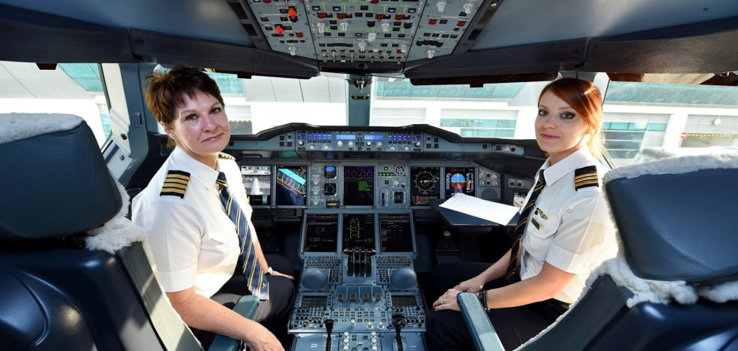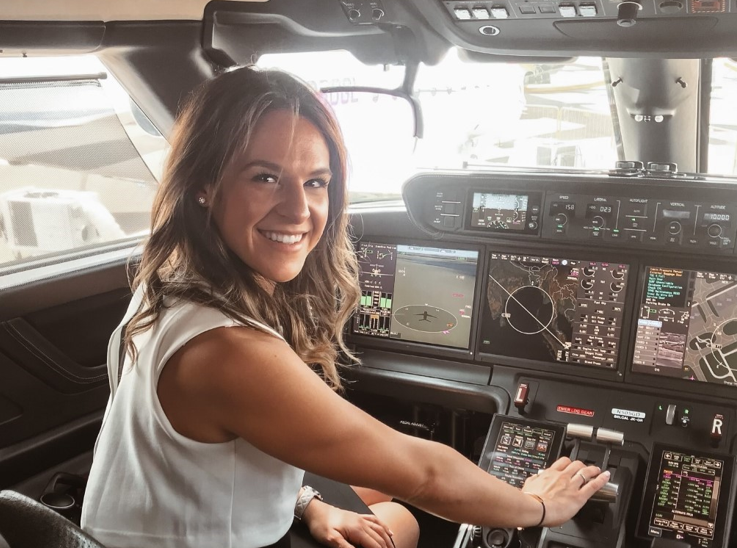CJI Asia: Technology and education are keys to unlock gender diversity

Harnessing technology and improving education are the keys to unlocking the challenge of boosting gender diversity in business, general aviation and aerospace, according to speakers at Corporate Jet Investor’s Asia 2020 online conference.
“Technology is where we need to focus,” Sarah Kalmeta, founder of new consultancy and coaching firm, Pivot Point, told delegates. “Not only is it transforming aviation but all industries. We are well into that global technology era and we are seeing a lot of change speed up opportunities because of the global [Covid-19] situation.”
Improved education could also speed progress towards gender diversity in aviation. Children were still being guided towards gender-tagged roles, although Kalmeta detected recent improvements. “In business aviation, in Asia in particular, I see more females in the industry in professional roles than when I first came to Asia 10 years ago. Traditionally women were on the customer care and accounting side and the men were doing operational and technical roles. But I’ve seen more women in technical advisor roles and working as operations specialists. That’s really positive.”
‘That’s really positive’
It’s not just in operational roles where female representation needs to be improved. Kalmeta highlighted a diversity study by McKinsey & Co, which revealed women’s representation on corporate boards and executive committees increased from 8% in 2010 to just 17% in 2017. That was braking the pace of progress in all industries, said Kalmeta.
“It’s in an environment where others are different to you that progress is made. If everyone around you is the same, everyone agrees with each other and repeats the same mistakes. So, the cost to innovation is extremely great because you are missing out on challenging viewpoints and mindsets. Those fresh perspective could bring to fruition new ideas and ways of working.”
Raja Sharmaine, PR and communications director with the newly-formed Women in Aviation Asia (WiAA), agreed gender diversity could be an engine of growth for the sector. Drawing lessons from the telecoms industry, in which she also works, Sharmaine said: “The acceptance of women in aviation is very low compared with the telecoms industry, where there is a good mix of men and women. And that mix helps to drive growth and business.”
‘Helps to drive growth and business’
WIAA advisor Brandon Ching explained that the self-funded organisation was aiming to improve the representation of women in aviation and aerospace by sharing inspiration stories about women currently making their mark in the sector. “We aim to improve women’s representation in the industry,” he said. “Central to that is to change the mindset of how people think – how the community thinks. We are looking for equality where men and women work alongside each other without negativity.”
None of the panellist underestimated the scale of the challenge. Women airline pilots number about 7,409 worldwide, or about 5.18% of the total, according to a 2018 study by the International Society of Women Airline Pilots.
Sharmaine said it was impossible to generalise about the representation of women in Asian societies. “Some societies are more accepting of women entering the industry than others. It’s a lot to do with societal standards and its acceptance of women filling such roles in the aviation industry.” For example the number of women airline pilots in India is far higher than in some other Asian countries.
Aviation business management has a key role to play in encouraging gender diversity, said Kalmeta. “There’s often talk about ‘The Boys Club’ and I think women need to understand that men can be their allies. And men need to take women under their wings and mentors. Having male allies will open you to the club and then they will see what your capabilities are.”
Meanwhile, Sharmaine draws her enthusiasm for aviation from an unexpected place: “I have always had a passion for aviation because of my fear of flying, which lead me to question why is it so safe.” Completing a degree in aeronautical engineering helped her to answer that question.
“If you have a passion for aviation, nothing should stand in your way from joining the industry,” said Sharmaine. Read more about WiAA here.
CJI Asia took place on Tuesday October 13th and Wednesday October 14th. To watch video panel discussion, click here.

Above: Sarah Kalmeta, Pivot Point, thinks lack of gender diversity is holding back innovation. Main image:
Flight deck crew with Emirates. Captain Patricia Bischoff (left) and first officer Rebecca Lougheed.








